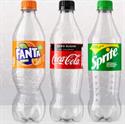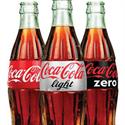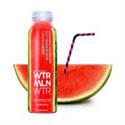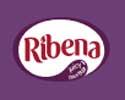Coca-Cola
All Coca-Cola European Partners Bottles Now Made With 50 Percent rPET

The multinational bottler has partnered with Coca-Cola Great Britain is manufacturing all plastic bottles across its core brands with 50 percent recycled plastic (rPET) – more than 21,000 tons of recycled plastic per year. Labels on the bottles will inform customers of the change and encouraging them to recycle the bottle under a Deposit Return Scheme that is coupled with investment in infrastructure. According to the company, there isn’t enough food-grade recycled plastic available in the U.K. to switch to 100 percent rPET across its entire range. [Image Credit: © Coca-Cola European Partners]
Coca-Cola Has Its Eye On Post-Pandemic Resurgence
 CEO James Quincey told investors at a Barclays conference recently that his company is determined to emerge from the pandemic with more customers and a more engaged, slimmed down organization. Coke restructuring during the pandemic crisis involved streamlining its portfolio and its global organization. The changes, which include easing its customer supply chain through reduced SKU management, offer a “golden opportunity” for the No. 13 consumer goods company to accelerate the focus on portfolio winners that attract and keep customers globally.[Image Credit: © Business Wire, Inc./The Coca-Cola Company]
CEO James Quincey told investors at a Barclays conference recently that his company is determined to emerge from the pandemic with more customers and a more engaged, slimmed down organization. Coke restructuring during the pandemic crisis involved streamlining its portfolio and its global organization. The changes, which include easing its customer supply chain through reduced SKU management, offer a “golden opportunity” for the No. 13 consumer goods company to accelerate the focus on portfolio winners that attract and keep customers globally.[Image Credit: © Business Wire, Inc./The Coca-Cola Company]
Coke Bottlers In U.S. Turn To Cost Cutting To Weather Pandemic Storm
 COVID-19 has toppled the decades-old business model of the more than 70 independent Coca-Cola bottlers in the U.S. As lockdowns pushed customers to grab cases of Coke, Fanta, and Sprite at grocery stores rather than at gas stations, restaurants, and stadiums, bottlers were forced to keep stores stocked with bigger, often less-profitable packages. Profitable sales to restaurants and convenience stores remain down, only a fraction of what they were before the pandemic hit the United States. A resulting body blow was the shortage of aluminum cans thanks to surging demand for canned drinks by people staying home. Workers at bottling companies have borne the brunt of these conditions. Coca-Cola Consolidated, the biggest U.S. Coke bottler, reported a 3.6 percent slide in quarterly net sales, but was able to increase adjusted operating income by 5.4 percent after furloughing about 700 people without pay.[Image Credit: © Coca-Cola Hellenic Bottling Company]
COVID-19 has toppled the decades-old business model of the more than 70 independent Coca-Cola bottlers in the U.S. As lockdowns pushed customers to grab cases of Coke, Fanta, and Sprite at grocery stores rather than at gas stations, restaurants, and stadiums, bottlers were forced to keep stores stocked with bigger, often less-profitable packages. Profitable sales to restaurants and convenience stores remain down, only a fraction of what they were before the pandemic hit the United States. A resulting body blow was the shortage of aluminum cans thanks to surging demand for canned drinks by people staying home. Workers at bottling companies have borne the brunt of these conditions. Coca-Cola Consolidated, the biggest U.S. Coke bottler, reported a 3.6 percent slide in quarterly net sales, but was able to increase adjusted operating income by 5.4 percent after furloughing about 700 people without pay.[Image Credit: © Coca-Cola Hellenic Bottling Company]
Danone
Evian Says All Of Its Bottles In The U.K. Are Made From Recycled Plastic

The French mineral water brand announced that the new bottles will be widely available in the U.K. beginning September 21, the first day of Recycle Week. Evian bottles were already 100 percent recyclable, but are also now made from 100 percent recycled plastic. An Evian marketing exec said the company is committed to providing “our iconic Evian water in a way that limits the use of virgin plastic.”[Image Credit: © Danone S.A.]
Nestle
Nestlé Waters U.K. Advances Plan For Circular Plastics Economy
 The Gatwick-based bottled water company has partnered with recycler Biffa in a program to collect recyclable PET bottles and reprocess them in the U.K. into rPET bottles. The partnership supports Nestlé Waters’ aim to collect as many bottles as it produces globally by 2030, enabling the company to significantly reduce the amount of virgin plastic it uses under its global commitment to reduce the use of virgin plastics by one third by 2025. Every BUXTON bottle will be made from 100 percent recycled rPET (recycled polyethylene terephthalate, by collecting recyclable PET bottles and reprocessing them here in the UK into rPET. Biffa has set a target to quadruple its plastic recycling by 2030, and the rPET supplied to Nestle Waters will come from the company’s new £27.5 million ($35 million) state-of-the-art plastic recycling facility in Seaham, County Durham. The plant has the capacity to process the equivalent of 1.3 billion plastic bottles a year and will supply recycled material to Nestle Waters Buxton factory beginning in 2021.[Image Credit: © 2020 Nestlé Waters]
The Gatwick-based bottled water company has partnered with recycler Biffa in a program to collect recyclable PET bottles and reprocess them in the U.K. into rPET bottles. The partnership supports Nestlé Waters’ aim to collect as many bottles as it produces globally by 2030, enabling the company to significantly reduce the amount of virgin plastic it uses under its global commitment to reduce the use of virgin plastics by one third by 2025. Every BUXTON bottle will be made from 100 percent recycled rPET (recycled polyethylene terephthalate, by collecting recyclable PET bottles and reprocessing them here in the UK into rPET. Biffa has set a target to quadruple its plastic recycling by 2030, and the rPET supplied to Nestle Waters will come from the company’s new £27.5 million ($35 million) state-of-the-art plastic recycling facility in Seaham, County Durham. The plant has the capacity to process the equivalent of 1.3 billion plastic bottles a year and will supply recycled material to Nestle Waters Buxton factory beginning in 2021.[Image Credit: © 2020 Nestlé Waters]
Nespresso Commits To Full Carbon Neutrality By 2022 Across Its Entire Supply Chain
 The Nestlé (Lausanne, Switzerland) brand of capsule coffees and coffee makers has pledged that every cup of Nespresso coffee for at-home and professional customers will be carbon neutral by 2022. The company has been carbon neutral across its business operations since 2017, and the new commitment will tackle emissions that occur in its supply chain and product life cycle. The goal will be achieved by: the reduction of carbon emission; the planting of trees in and around coffee farms where Nespresso sources its coffee (insetting); and through support, and investment in high quality offsetting projects. Nespresso said a broader sustainability program to be announced later this year that will: preserve exceptional coffees, build a resilient and regenerative coffee agriculture system, drive sustainable livelihoods for farmers and build a circular business.[Image Credit: © Nestlé Nespresso SA]
The Nestlé (Lausanne, Switzerland) brand of capsule coffees and coffee makers has pledged that every cup of Nespresso coffee for at-home and professional customers will be carbon neutral by 2022. The company has been carbon neutral across its business operations since 2017, and the new commitment will tackle emissions that occur in its supply chain and product life cycle. The goal will be achieved by: the reduction of carbon emission; the planting of trees in and around coffee farms where Nespresso sources its coffee (insetting); and through support, and investment in high quality offsetting projects. Nespresso said a broader sustainability program to be announced later this year that will: preserve exceptional coffees, build a resilient and regenerative coffee agriculture system, drive sustainable livelihoods for farmers and build a circular business.[Image Credit: © Nestlé Nespresso SA]
Other Companies
Ocean Spray, TerraCycle Launch Free Recycling Program
 The Middleborough, Mass.-based agricultural cooperative says waste management company TerraCycle is launching a free recycling program that enables Ocean Spray customers to recycle flexible plastic Craisins dried cranberries and snack packaging for an alternative use. Participants in the program can send their Craisins flexible plastic packaging to TerraCycle, where the packaging is cleaned and melted into hard plastic that can be remolded into new recycled products, such as park benches and picnic tables. For each shipment of Craisins packaging sent to TerraCycle through the program, participants earn points that can be donated to a non-profit, school or charitable organization of their choice. The cooperative is also working with TerraCycle's new Loop platform to design and launch products in reusable packaging.[Image Credit: © Ocean Spray]
The Middleborough, Mass.-based agricultural cooperative says waste management company TerraCycle is launching a free recycling program that enables Ocean Spray customers to recycle flexible plastic Craisins dried cranberries and snack packaging for an alternative use. Participants in the program can send their Craisins flexible plastic packaging to TerraCycle, where the packaging is cleaned and melted into hard plastic that can be remolded into new recycled products, such as park benches and picnic tables. For each shipment of Craisins packaging sent to TerraCycle through the program, participants earn points that can be donated to a non-profit, school or charitable organization of their choice. The cooperative is also working with TerraCycle's new Loop platform to design and launch products in reusable packaging.[Image Credit: © Ocean Spray]
Caribé Juice Acquires Cold-Pressed Wtrmln Wtr

The Virginia-based cold-pressed juice company has acquired Wtrmln Wtr, a female-founded maker of a cold-pressed juiced watermelon beverage. The company reportedly has a roster of celebrity investors, including Beyonce Knowles Carter, Chris Paul, Kevin Durant, Michael Strahan, and Tony Robbins. Minority-owned business Caribé Juice sources the fruit and vegetables used to make its product portfolio from the Caribbean. Financial terms of the deal were not disclosed.[Image Credit: © World Waters™, LLC]
Ribena”s Launch Of Sparkling Line Signals Entry Into Carbonated Segment
 The British-origin brand, owned by Suntory Beverage & Food, says the carbonated range will be available this month in two flavors and three formats. Sparkling Blackcurrant comes in 500 ml, 2 L and 6x330ml multipack cans; Ribena Sparkling Raspberry is available in 500 ml and 2 L formats. The launch of Ribena Sparkling will be supported by an extensive shopper activation, out-of-home, and digital and social media campaign. The Ribena brand is also offering retailers an exclusive reward that can be claimed via the Shopt app through 27 October. Versions of the blackcurrant-based uncarbonated and carbonated soft drink and fruit drink concentrate have been produced since the 1930s.[Image Credit: © Lucozade Ribena Suntory Ltd]
The British-origin brand, owned by Suntory Beverage & Food, says the carbonated range will be available this month in two flavors and three formats. Sparkling Blackcurrant comes in 500 ml, 2 L and 6x330ml multipack cans; Ribena Sparkling Raspberry is available in 500 ml and 2 L formats. The launch of Ribena Sparkling will be supported by an extensive shopper activation, out-of-home, and digital and social media campaign. The Ribena brand is also offering retailers an exclusive reward that can be claimed via the Shopt app through 27 October. Versions of the blackcurrant-based uncarbonated and carbonated soft drink and fruit drink concentrate have been produced since the 1930s.[Image Credit: © Lucozade Ribena Suntory Ltd]
Lonza Unveils Probiotic Sports Nutrition Ingredient Derived From Kimchi
 The Lactobacillus plantarum probiotic strain (TWK10) from Lonza Capsules & Health Ingredients is isolated by Syn Biotech (Taiwan) from naturally fermented Taiwanese kimchi (Napa cabbage, Korean radish, etc.). Lonza has an exclusive North American license from Syn Biotech for the ingredient, which is touted as a probiotic ingredient for the sports nutrition market that improves endurance, body composition, and energy levels for both elite athletes and active consumers. The ingredient can be used in dietary supplements and in foods, with additional applications in development.[Image Credit: © SYNBIO TECH INC.]
The Lactobacillus plantarum probiotic strain (TWK10) from Lonza Capsules & Health Ingredients is isolated by Syn Biotech (Taiwan) from naturally fermented Taiwanese kimchi (Napa cabbage, Korean radish, etc.). Lonza has an exclusive North American license from Syn Biotech for the ingredient, which is touted as a probiotic ingredient for the sports nutrition market that improves endurance, body composition, and energy levels for both elite athletes and active consumers. The ingredient can be used in dietary supplements and in foods, with additional applications in development.[Image Credit: © SYNBIO TECH INC.]
Copyright 2026 Business360, Inc.

